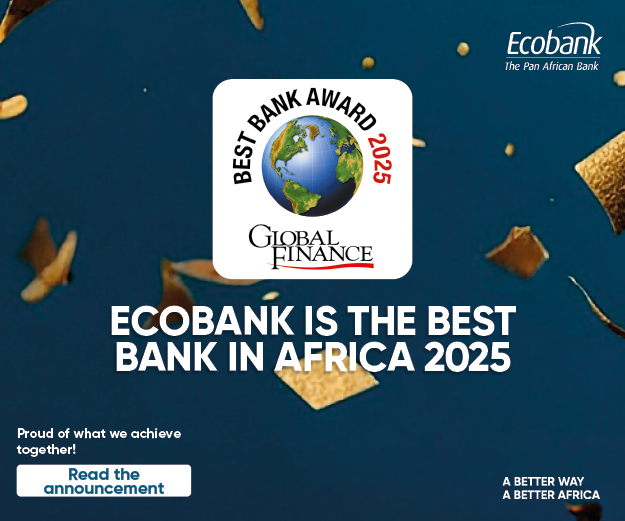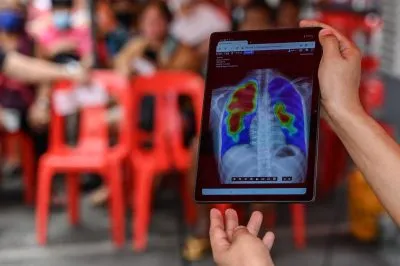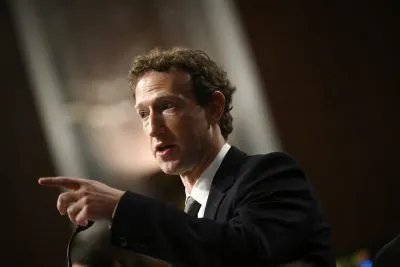There is no shortage of innovation and ideas in Africa. Now, the global reach of the internet is making possible an equally innovative solution for getting finance to small and mediumsized businesses in Africa – crowdsourcing. Richard Seymour has the details.
Wikipedia, the ubiquitous and much-loved resource for students and journalists the world over, owes its success to the global online community of contributors and editors and the till-then underused power of the ‘crowd’ and its willingness to collaborate to further the common good.
Crowdsourcing, as the phenomenon has become known, has since developed into a potent tool for business. Whether it is relying on the community to provide free technical support on user forums, thus saving your business millions, or, more recently, as a means of raising capital, it is transforming the business environment. As a method of financing it is becoming increasingly popular among artists as a way to fund films, albums and other creative ventures. Just recently, American actor, writer and director Zach Braff raised more than $2m on the crowdsourcing website, Kickstarter, for a follow-up film to his 2004 success, Garden State.
Crowdsourcing is not the exclusive preserve of artists, however. Businesses all over the world are increasingly turning to the model to raise capital for their own ventures. There have been a number of innovative solutions in recent years to the problem of getting finance to small and medium-sized businesses in Africa. Perhaps the most popular, enabled by the rise in mobile banking, is microfinance. Some businesses in Africa are looking at ways to combine microfinance with crowdsourcing. MYC4 is a Danish company with an office in Nairobi that connects potential investors with small businesses in Africa who cannot otherwise access the money they need. A businessman, for instance, seeking capital will go to see a local MYC4 partner to discuss the plans for his business. If the plans are viable the two parties will agree on the size of the loan, a repayment structure and collateral to put up in case of a default.
The business will then appear on the MYC4.com website, where potential investors can find out all they need to know about the entrepreneur and his business. At this point an auction takes place where would-be investors enter bids of how much they are willing to lend (there is a €5 minimum) and what interest rate they are charging. The investors who ask for the lowest interest rates are those who get to invest at the end of the process. The local partner receives the funds and passes them on to the entrepreneur. When the business grows, the investors start to see a return on their investments. According to the MYC4 website, to date they have facilitated almost €20m for over 13,000 loans to nearly 12,000 businesses, ‘influencing’ 65,600 people.
Success stories
Raphael Silva Mathuva had a business repairing bicycles in Kenya. But as bicycles became replaced in popularity by motorcycles, Raphael knew he had to diversify. He borrowed just €740 from 43 MYC4 investors, which he has now paid back in full, to buy spare parts and so expand his business.
He also owns a fleet of 11 motorcycles, which he rents for a daily fee to young people who use them to facilitate their own businesses, which illustrates beautifully how just a little help for one entrepreneur has a ripple effect which can empower countless others in the local community.
A father of three children, who in addition to his rental business buys and sells motorcycles locally, he hopes to expand his business further while continuing to repair bicycles. “I will always be of service to the bicycle customers because that is how I started,” he says, “and I am proud of my humble beginning as it reminds me to always be a hard worker.” Through his growing business he has been able to pay for his children to be privately educated and he has bought land on which he intends to build a home, providing long-term security for him and his family.
The loans provided for successful businesses through MYC4 are relatively small, with most being in the hundreds rather than the thousands of euros. However, these relatively small amounts are enough to make a huge difference to the lives of struggling African entrepreneurs who are only held back by a lack of capital and not resolve, ambition or ideas. There are, though, more facets to crowdsourcing than raising money. Distributed knowledge is a means by which know-how and experience can be pooled and shared among a large group of people or businesses.
Flexible skills for Africa
BongoHive, a ‘Technology and Innovation Hub’ based in Zambia is one such ‘distributed knowledge’ effort. It provides an environment where normally disparate entrepreneurs can get together to network, swap ideas, receive training and participate in industry events. The hub aims to bring innovation by way of technology to all areas of Zambian life, from education and healthcare to business and entrepreneurship. Last year they hosted an event known as a hackathon, where programmers get together to collaborate intensively on a project. The result of this collaboration between Random Hacks of Kindness (a global network of programmers) and the Peace Corps was a translation app, free to download on the Android mobile platform, called Banu Babel.
Another crowdsourcing model distributes tools that enable a project’s outcome. uTest is one such project that tests the usability of software at a fraction of the cost of other usability companies. It does this by lever-aging thousands of software experts from around the world, many of them based all over Africa, to do the job themselves. It is not just tech industry workers who can benefit from crowdsourcing, however. Placing a skill to an employer is no longer tied to geography. Distributed labour is another offshoot of crowdsourcing which has proved successful elsewhere and affords great possibilities to Africa. This allows tasks to be assigned to workers with specialised skills wherever they are in the world, allowing for a more flexible and dynamic workforce.
Websites such as Jobbi and People Per Hour allow workers to advertise a skill, say, designing business cards, and the fee they charge. Businesses requiring that skill can then hire that worker for a one-off job. This means that an entrepreneur in Africa who cannot source the necessary skills locally can cast his net further afield, allowing his business to grow even in areas where the skills gap would ordinarily slow it down. Largerscale projects are able to assign micro-tasks to dozens, hundreds, or even thousands of people who perhaps live in areas where the skills gap problem flows in the other direction where skilled workers have no industry to go into.
What makes crowdsourcing so potent is its democratic nature and the fact it does not become bogged down in politics, petty bureaucracy and cross-border complications. Where governments and traditional business models can often be slow to act, the crowdsourcing model is swift and adaptable and able to pool resources almost at an instant wherever they are. Indeed, governments and businesses have had the foresight to recognise the possibilities of crowdsourcing for delivering services. In Kenya, MajiVoice has successfully leveraged the public to more effectively report disruption to water delivery. This not only benefits citizens but also businesses, who are able to respond to issues more cheaply and quickly than they could before.
It is well known that there is no shortage of innovation and ideas in Africa. All that is needed is a little capital to release that potential. Crowdsourcing offers an intriguing way to achieve this. For not only does it have the ability to raise money quickly from all over the world it promises to facilitate the exchange of ideas and knowledge as a powerful mechanism for poverty alleviation and social change that is guided by the people themselves and not a political and economic elite who for so long have failed to find, or even perhaps look for, Africa’s most pressing problems.
Want to continue reading? Subscribe today.
You've read all your free articles for this month! Subscribe now to enjoy full access to our content.
Digital Monthly
£8.00 / month
Receive full unlimited access to our articles, opinions, podcasts and more.
Digital Yearly
£70.00 / year
Our best value offer - save £26 and gain access to all of our digital content for an entire year!

 Sign in with Google
Sign in with Google 



